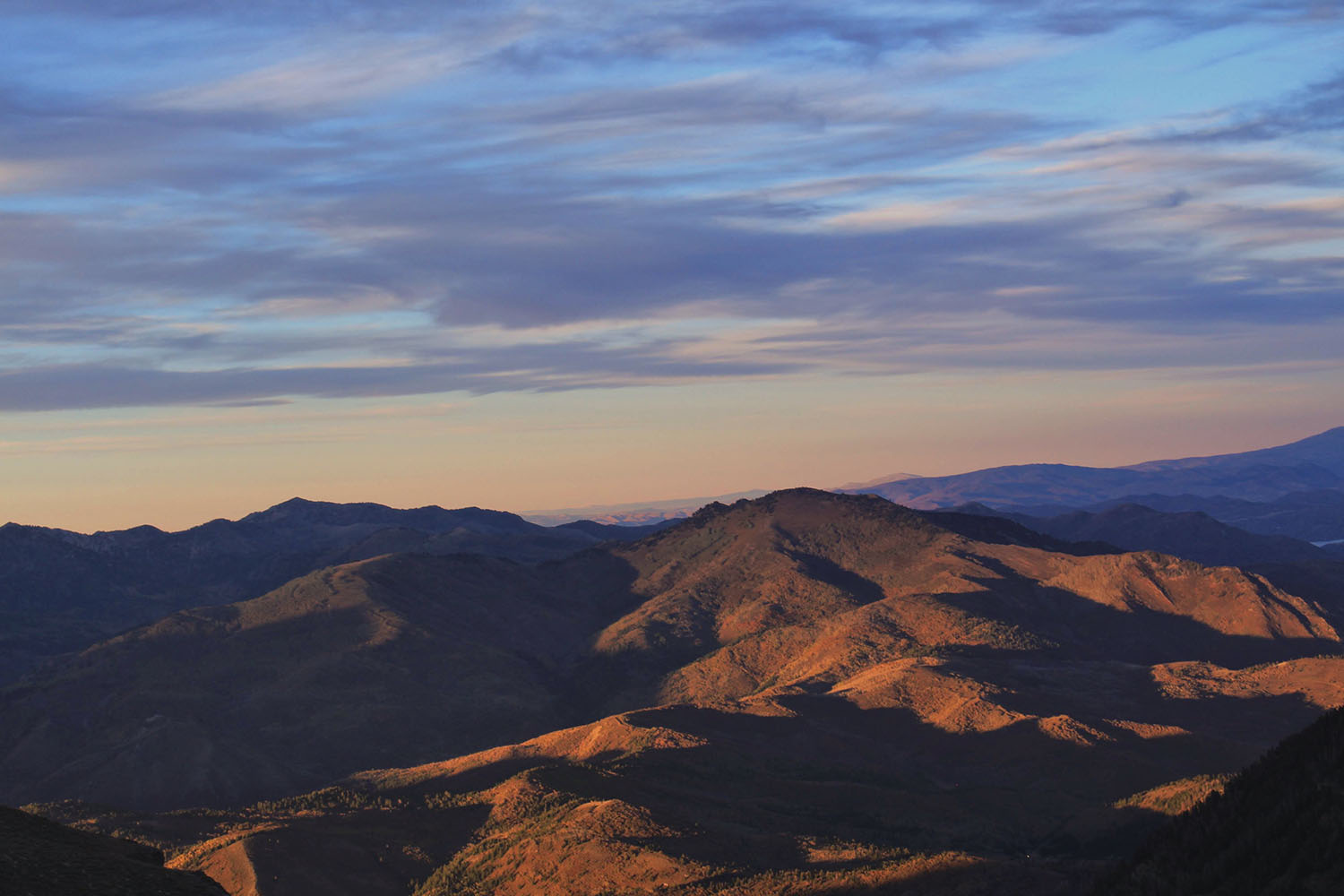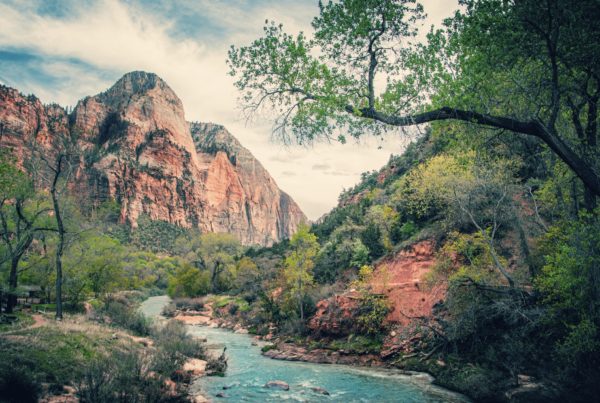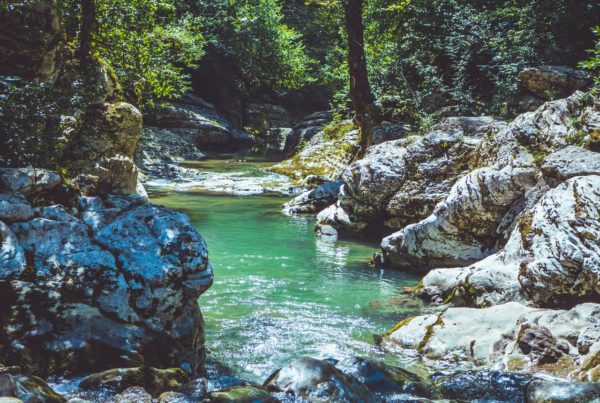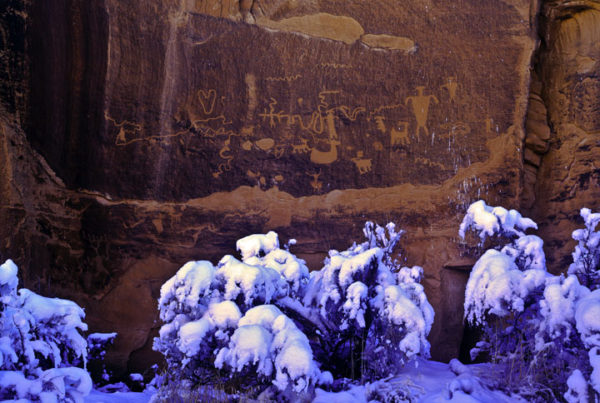Feeling connected to the author’s words: that’s the point of a story isn’t it? Whether it’s gaining knowledge, remembering your past, or finding a new strength in one’s self, the author wants you to connect to their story in some way: that’s why they tell it.
When I read the first section of A Sand County Almanac by Aldo Leopold, I felt connected almost instantly. Whether it was the mention of Babcock Dairy bringing me back to the ice cream there when I was little, or the talk of firewood reminding me of the fireplace in my childhood home, I felt like I was there with Leopold. However, nothing brought up such a vivid memory as the paragraph on page 27 in the section on April, “There are degrees and kinds of solitude… A peak in the clouds has another kind; but most peaks have trails, and trails have tourists.”
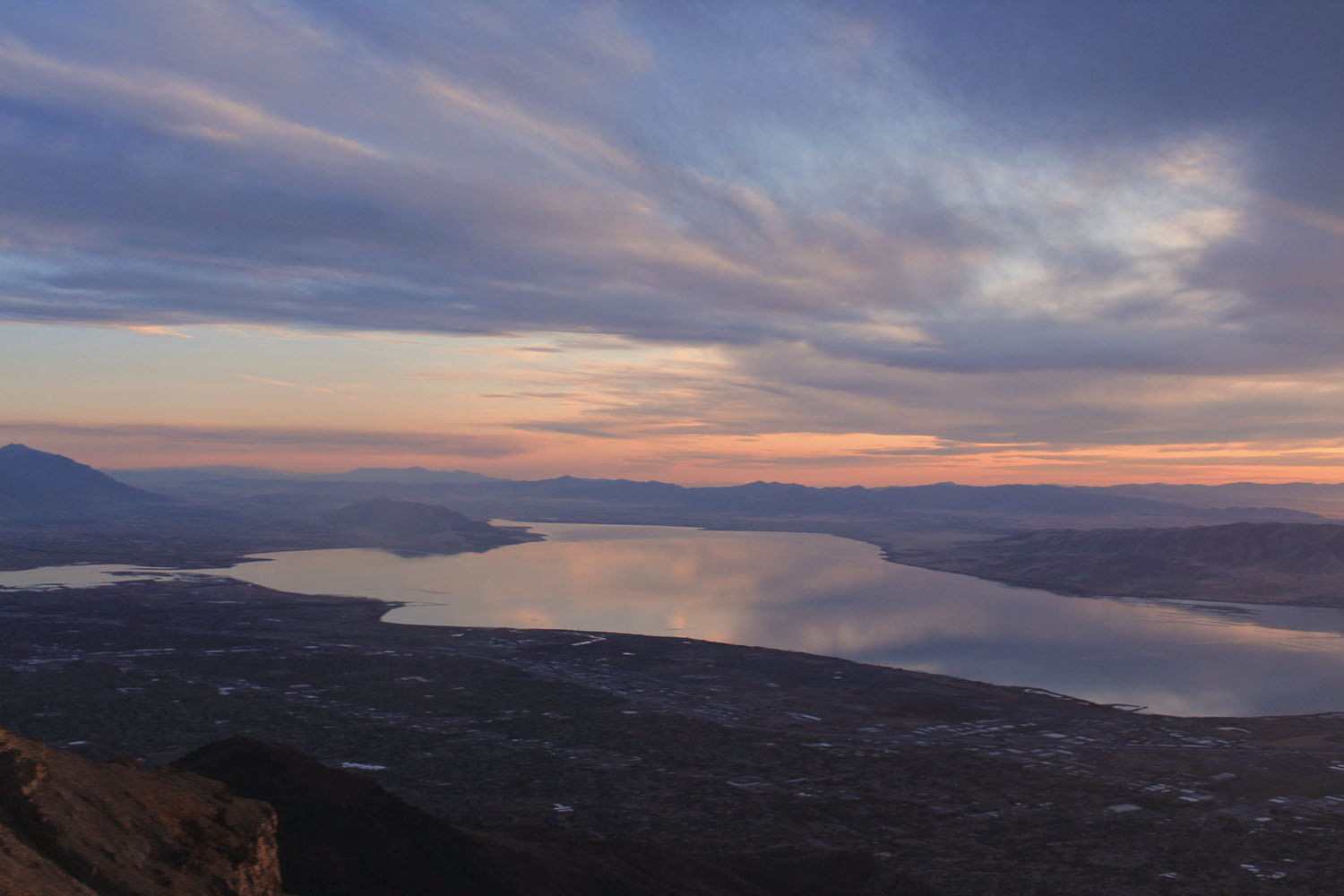
Peace in the Morning
“A peak in the clouds” made me instantly think of Mt. Timpanogos. A true beauty of a mountain that I was fortunate to see from my dorm room every day, and that I was able to climb twice during my first two years of college. I remembered my last climb with my friend Lucy. We got up before the sunrise and saw the early light as we climbed higher and higher. We heard the deer on their morning walk to their grazing land. But mostly, I recalled gazing upon the peak as I pushed up on our final ascent. It was a freezing climb in the relentless wind, but it was so calming to make it to the top and look at the rest of the Wasatch range, seeing the horizon expansive horizon before my eyes.
While I was already interested in a career dealing with the natural world at this point, my experience made me realize exactly what I wanted to focus on: helping other people find their love for the outdoors just like I had found mine. After the hike, Lucy would not stop thanking me for the opportunity to find peace in nature during that busy week and told me how much she needed that escape. I was so grateful that I got to help her understand and experience the beauty and peace that nature can bring into one’s life.
Nonetheless, this memory made me think critically about the words of Leopold and other traditional conservation writers like him. Words like “…and trails have tourists” seem bitter, not joyful about the thought of others experiencing the same things we do. Is this idea of the loss of solitude the best way to get people to want to protect nature like we do? If we are actively limiting newcomers or people who are different from us for the sake of our somewhat selfish solitude, will they ever want to help us conserve the world that we need to protect?
I think not. We can find a common ground between protecting our nature and allowing newcomers into it. We can have rules in place to conserve from the harmful destruction of overuse and negligence. But most importantly, we can share it with those we love and help them to grow their understanding of their place in conservation through the peace they learn to find in our sacred wild spaces.
